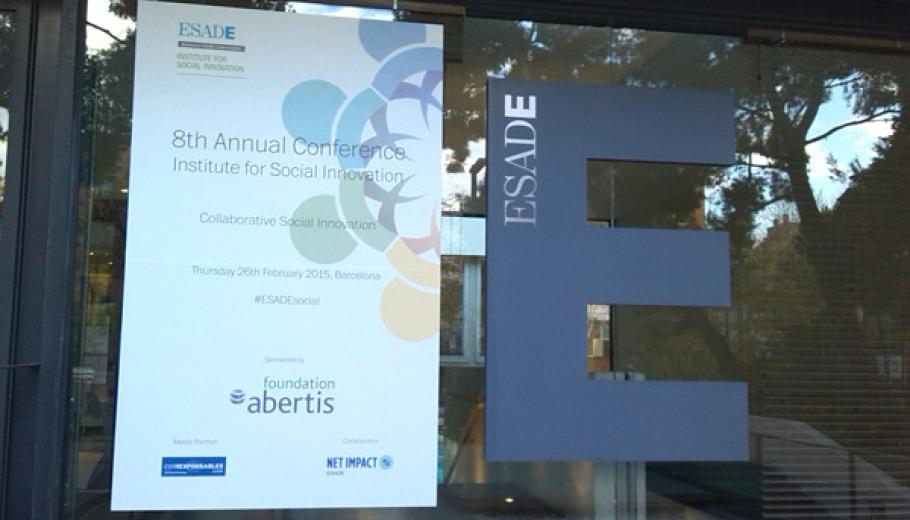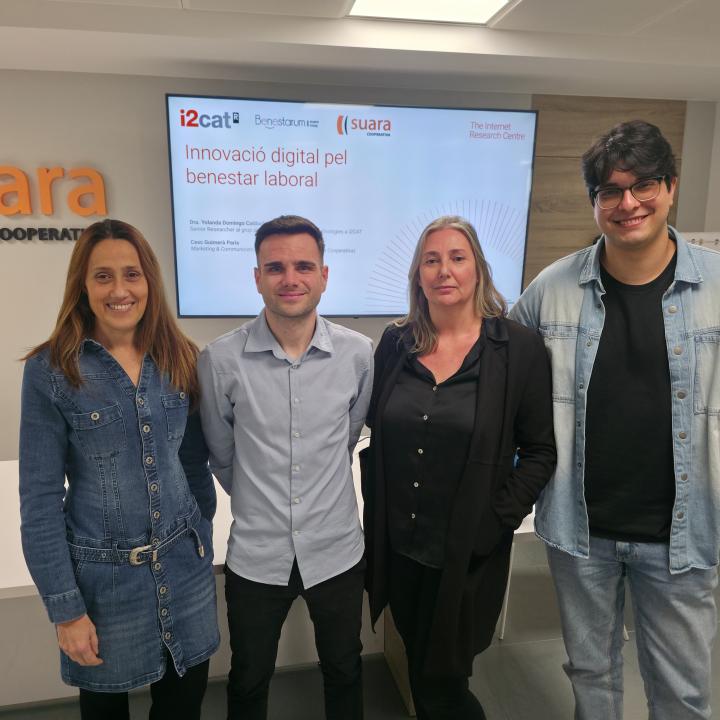With the title Collaborative Social Innovation has presented the 8th annual conference of the Institute for Social Innovation of ESADE where we have participated from the Suara Innovation Promotion Group.
Simon Willis, CEO of The Young Foundation, asked the audience whether social innovation could provide an answer to the major challenges facing society, such as growing inequality, climate change, the debt we are accumulating and economic instability, and focused on disruptive innovation. He suggested the need to produce an abrupt change that breaks with previous models and allows new proposals to lead society. Social innovation is a new way of approaching social needs. To be social in the means and with its ends. It is essential to involve and mobilize beneficiaries, giving them access to power and resources. More people, entities and companies that innovate are needed. The social impact of innovation through collaboration must allow to transform society.
One of the most exciting presentations of the day at ESADE was that of Albert Cañigueral, founder and editor of Consumocolaborativo.com and connector to OuiShare Barcelona. Technology and especially thanks to the internet, social networks and cell phones are giving rise to initiatives with a great impact on the world with few resources. We can find in the network many examples of organizations that have a great impact on our society and have begun to relate differently incorporating collaborative models based on shared resources.
This allows an evolution from traditional management models to more disruptive models that advance both companies and organizations with social impact. One of the keys for social projects is how to finance and scale social innovation, an aspect that the conference provided several initiatives and tools that have emerged in recent years such as crowdfunding, social impact bonuses and impact investment. Examples such as the Goteo.org platform, which through crowdfunding helps to finance projects that provide a return.
From Cañigueral's presentation we highlight several ideas to consider:
- "To change the world it is not necessary to create a company; there is a platform ".
- We must move from product to service". And he explained it to us with a very simple example: we don't really need a drill, we need some holes in the wall.
- The need for networking, relationships, participation, collaboration and peer to peer coordination. The increasingly important trend of the collaborative economy".
During the day, five social entrepreneurship projects based on collaborative social innovation were presented. Some of them were more familiar to us, such as the VÍNCULOS Project of the Barcelona City Council. "La Colmena que dice si!", A proposal to transform the relationship between producers and consumers based on the direct relationship between the two parties. And finally, we highlight the proposal of Puddle, an alternative model to the banking system to access credit and that reminds us of a collaborative project internal to Suara Cooperativa that is about to see the light for members.
The day ended by pointing out these aspects:
- The collaborative economy will be green or it won't be (we don't need more cars).
- The collaborative economy must incorporate everyone and solve the real problems of society.
- The challenge is to break monopolies.
- Public policies must be worked on in a collaborative and serious way. New public policies are needed.
- The future depends on collaboration. Social movements are the key to change.
Mónica Arribas. Suara's Innovation Promotion Group (*)
(*) This article has been prepared jointly with the contributions of Mónica Arribas and Jordi Picas.




